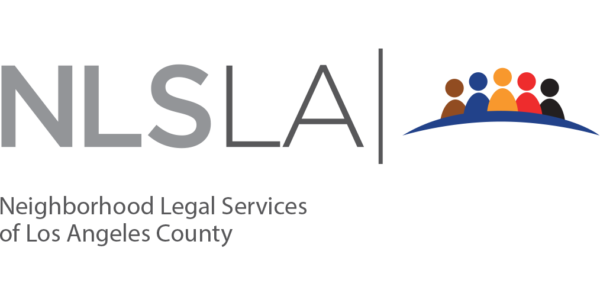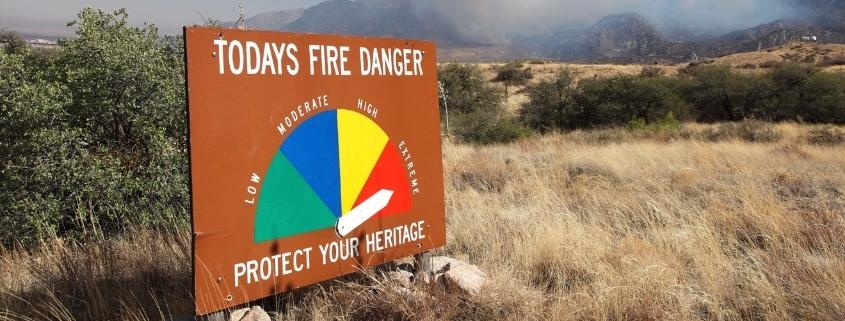The Wildfire Smoke Standard: Workers’ Rights and CalOSHA Complaints
Written by Naomi Gemmell, Staff Attorney & William Simonsick, Legal Technology Attorney
Workers in California have certain protections if the air quality is bad due to wildfire smoke or air pollution. If you are an outdoor worker breathing unhealthy levels of smoke from California fires, your health is at risk, and you may have a right to avoid this exposure.
The Wildfire Smoke Standard (WSS) protects workers when there are unhealthy levels of wildfire smoke in the air. When the air quality reaches an unhealthy level – an Air Quality Index of 151 or more — your employer must give you masks or respirators, or make other changes to lower the amount of time that you are in smoky air. If your employer does not do these things, you can file a complaint with the California Division of Occupational Safety and Health (CalOSHA). It is important to remember that it is your employer’s duty – not yours – to find out if the WSS applies and to provide masks or keep you out of the smoke. Please contact our attorneys for questions or information about the complaint process.
How do I know when the Wildfire Smoke Standard applies?
The WSS applies when the air is unhealthy. The Air Quality Index (AQI) tells you how healthy or unhealthy the air is by telling you how many small pieces of toxic bits are in the air from wildfire smoke. The higher the number, the unhealthier the air. You can find out the AQI by looking at many weather apps or by going to AirNow.gov.
If the air you are breathing has an AQI of 151 or higher, the air is considered unhealthy and the WSS applies if you work outside for over an hour. It also applies if you are indoors or in a vehicle for more than an hour, but there is no air filtration and the windows or doors are open. The WSS does not apply to wildland firefighters or workers who are not exposed for over an hour.
What is my employer required to do when the WSS applies?
If the WSS applies, your employer must give you a mask or respirator that is N95 quality or better, or change the working conditions to lower your exposure to wildfire smoke. For example, your employer can move you to a different location, change the layout of the site, or change what tasks you are given. If the AQI is between 151-500, your employer must make a mask or respirator available. If the AQI goes up to 501 or more, your employer must give you a mask or respirator and require that you wear it.
Your employer must have a plan for what they will do if and when the WSS applies, including how they will tell you when the WSS applies. This information must be provided in the language you speak. This plan must say you can tell your employer that the air quality is bad or that the air quality is causing negative health effects such as coughing or trouble breathing, without getting in trouble. Your employer must act upon this information and check the air quality, and if it is unhealthy, they must change the working conditions at the site. You must also be allowed to get medical help if you have these symptoms.
You can file a complaint with CalOSHA if your employer does not give you a mask, respirator, change the conditions at your worksite, or train you on what to do when there is wildfire smoke in the air. The California Safety and Health Act of 1973 gives you the right to file a complaint about workplace safety if your employer does not follow the laws related to wildfire smoke. If you are eligible for our services, NLSLA may be able to help you with the complaint process.
How do I file a complaint?
You can file a complaint by calling or emailing the CalOSHA district office closest to your place of work. To find a list of the offices, enter your zip code or city name at the following website: File a Workplace Safety Complaint. For help with filing your complaint, please call the NLSLA disaster help line at 800-870-0732 or apply online at Disaster Assistance Project – NLSLA. You should file the complaint as soon as possible after noticing your employer is not following the WSS. If you are not sure whether your employer is violating the WSS, or if you have any other questions about your rights, please call NLSLA. Note that CalOSHA protects all private employees as well as state and local government workers.
What information do I need to provide to CalOSHA?
When you call CalOSHA, you should be ready to give them as much information as possible about your place of work and any safety and health issues related to the wildfire smoke. Below is a list of the type of information CalOSHA may ask you about:
- Name, address, and telephone number of the worksite
- Type of business
- Name and job title of the manager at the worksite
- Your name, address, telephone number, and email address
- A detailed description of the safety issue(s)
- If the worksite is large, the specific location of the safety issue
- Operations, equipment, machinery, and chemicals used at the worksite
- Work tasks performed near the safety issue
- How often the work tasks are performed and for how long at any one time
- Number of work shifts, the time that each shift begins, and the shift when the safety issue occurs
- Number of employees at the worksite, number of employees who may be exposed to the safety issue, and how close the employees are to the safety issue
- Employees injured or having symptoms caused by the safety issue and whether the employees have received medical treatment for their injuries or symptoms
- How long the safety issue has existed, whether the employer knows about it, and whether the employer has tried to correct it
- How long you expect the safety issue will continue to exist at the worksite
- If there is an employee bargaining unit representative at the worksite, the person’s name, and contact information
What are the next steps?
CalOSHA will open an investigation within three days of receiving an allegation of a serious violation, and within fourteen days of receiving an allegation of a non-serious violation. After your complaint is submitted, CalOSHA will determine if your complaint is valid and make a decision about “inspection priority.” Imminent hazard complaints—ones that could cause death or serious harm—are given priority.
Will I get in trouble with my employer for filing a CalOSHA complaint?
CalOSHA must keep the name of any person who submits a complaint confidential unless you request otherwise. It is illegal for your employer to retaliate against you for filing a CalOSHA complaint. You cannot be fired or harassed for filing a CalOSHA complaint even if CalOSHA does not determine that your employer broke the law. If you suspect your employer is retaliating against you, you can file a complaint with the California Labor Commission.
- See Denise M. Gaughan, Chris A. Piacitelli, Bean T. Chen, Brandon F. Law, M. Abbas Virji, Nicole T. Edwards, Paul L. Enright, Diane E. Schwegler-Berry, Stephen S. Leonard, Gregory R. Wagner, Lester Kobzik, Stefanos N. Kales, Michael D. Hughes, David C. Christiani, Paul D. Siegel, Jean M. Cox-Ganser & Mark D. Hoover (2014) ‘Exposures and Cross-shift Lung Function Declines in Wildland Firefighters’, Journal of Occupational and Environmental Hygiene, 11:9, 591-603; Alman, B.L.; Pfister, G.; Hao, H.; Stowell, J.; Hu, X.; Liu, Y.; Strickland, M.J., ‘The association of wildfire smoke with respiratory and cardiovascular emergency department visits in Colorado in 2012: A case crossover study’, Environ. Health 2016, 15, 64.
- File a Workplace Safety Complaint



